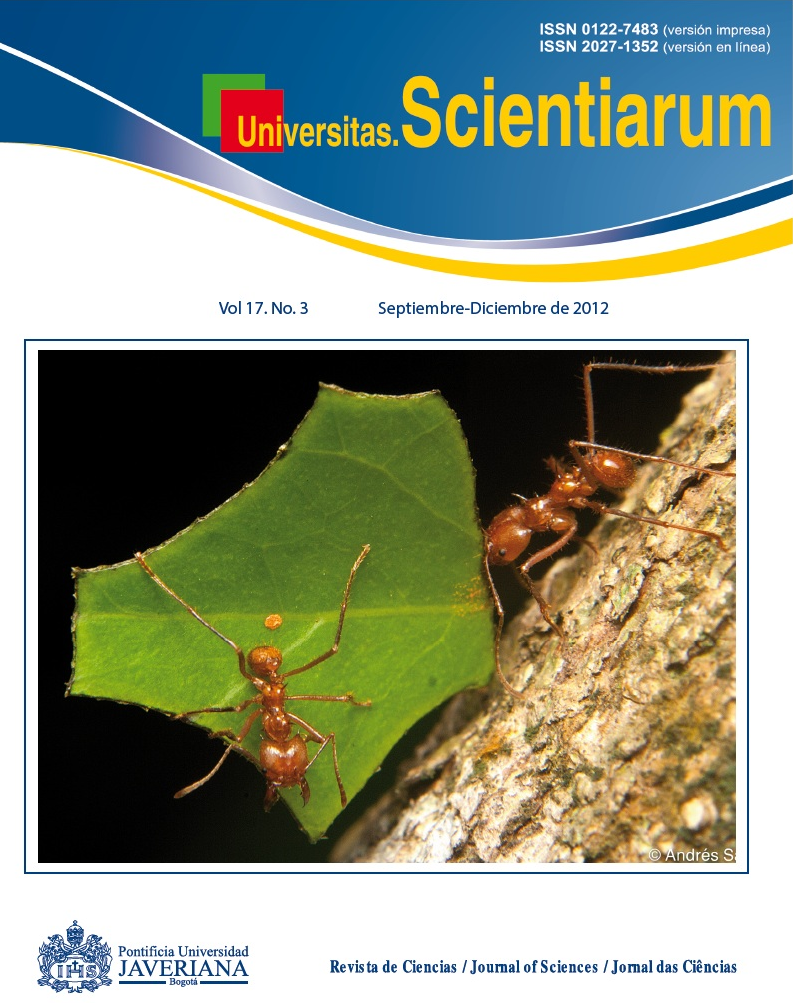Abstract
The guava weevil Conotrachelus psidii Marshall is a major pest affecting guava cultivation in Santander, Colombia; it causes serious losses in the quality and the volume of fruit produced. Biological control is a viable option for pest management; entomopathogenic nematodes (EPNs), particularly, have shown good results (63-90% mortality) in controlling fourth instar larvae of the guava weevil. In this study we evaluated the effect of seven species of EPNs isolated in Colombia: Steinernema websteri JCL006, Steinernema sp. 1 JCL024, Steinernema sp. 2 JCL007, Steinernema sp. 3 JCL027, S. colombiense SNI0198, Heterorhabditis bacteriophora HNI0100 and Heterorhabditis sp. SL0708 on fourth instar larvae of the guava weevil in laboratory conditions, and measured the production and the displacement of the most virulent. Heterorhabditis sp. SL0708 induced mortality of 85%, Steinernema sp. 1 JCL024 75% and S. colombiense SNI0198 55%, the other species of EPNs, less than 25% mortality. Increased production of JI by weevil larva was recorded in Heterorhabditis sp. SL0708, which also showed greater recognition capability when the host was C. psidii.
Univ. Sci. is registered under a Creative Commons Attribution 4.0 International Public License. Thus, this work may be reproduced, distributed, and publicly shared in digital format, as long as the names of the authors and Pontificia Universidad Javeriana are acknowledged. Others are allowed to quote, adapt, transform, auto-archive, republish, and create based on this material, for any purpose (even commercial ones), provided the authorship is duly acknowledged, a link to the original work is provided, and it is specified if changes have been made. Pontificia Universidad Javeriana does not hold the rights of published works and the authors are solely responsible for the contents of their works; they keep the moral, intellectual, privacy, and publicity rights. Approving the intervention of the work (review, copy-editing, translation, layout) and the following outreach, are granted through an use license and not through an assignment of rights. This means the journal and Pontificia Universidad Javeriana cannot be held responsible for any ethical malpractice by the authors. As a consequence of the protection granted by the use license, the journal is not required to publish recantations or modify information already published, unless the errata stems from the editorial management process. Publishing contents in this journal does not generate royalties for contributors.



